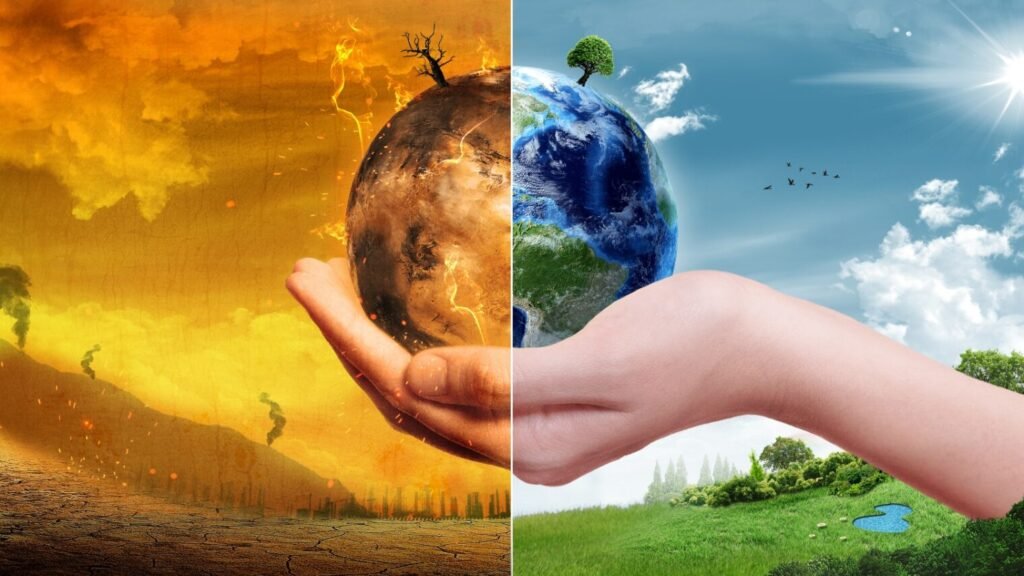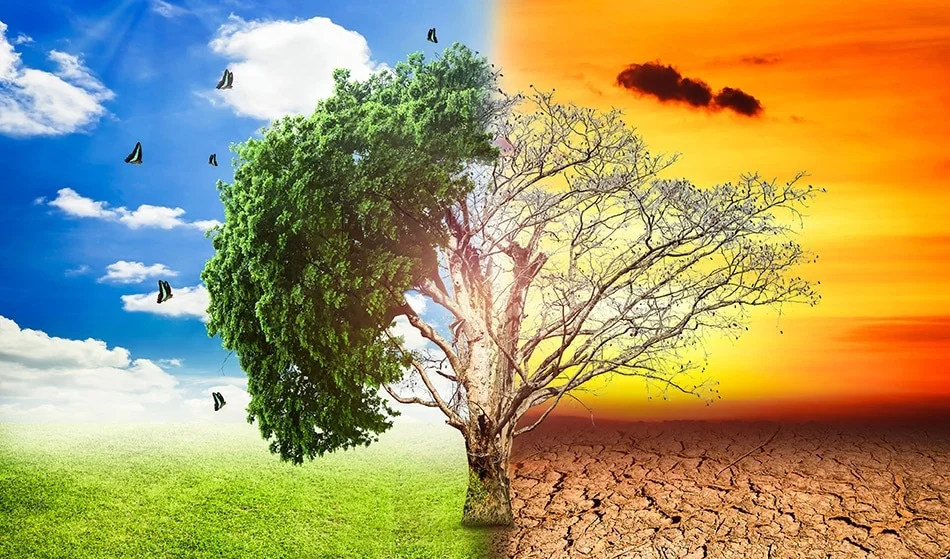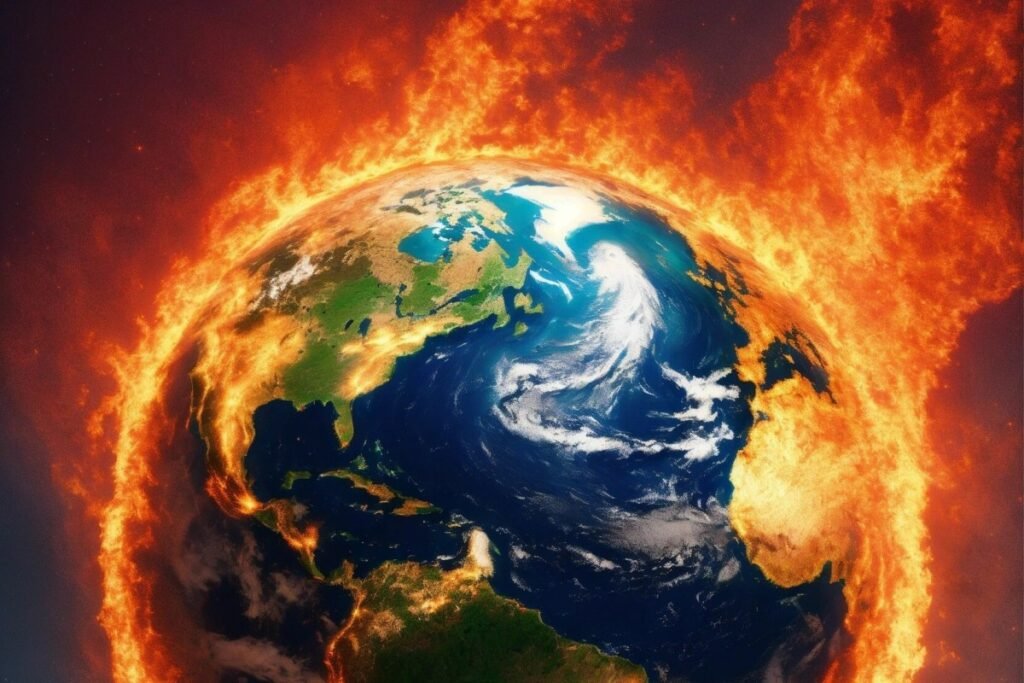GLOBAL WARMING

Global warming refers to the long-term increase in Earth’s average surface temperature due to human activities, particularly the emission of greenhouse gases (GHGs) like carbon dioxide (CO₂), methane (CH₄), and nitrous oxide (N₂O). These gases trap heat in the atmosphere, creating what is known as the greenhouse effect. While this effect is a natural process that warms the Earth to a habitable temperature, human activities—especially burning fossil fuels for energy, deforestation, and industrial processes—have dramatically increased the concentration of these gases, amplifying the effect and leading to global warming.
Key Causes of Global Warming:
- Burning of Fossil Fuels: Coal, oil, and natural gas are burned for energy, releasing large amounts of CO₂ into the atmosphere.
- Deforestation: Trees absorb CO₂, and when forests are cleared for agriculture or urban development, this carbon sink is lost, exacerbating the problem.
- Industrial Agriculture: Practices like livestock farming produce significant methane emissions, while the use of synthetic fertilizers releases nitrous oxide.
- Waste Management: Landfills and waste incineration also contribute to GHG e
- Rising Temperatures: Global temperatures have risen by approximately 1.2°C since pre-industrial times, and projections suggest that they could increase by another 1.5°C to 4°C by the end of the century if emissions continue unchecked.
- Sea Level Rise: Melting ice sheets and glaciers, combined with thermal expansion of seawater, are causing sea levels to rise, threatening coastal cities and ecosystems.
- Extreme Weather Events: More frequent and severe heatwaves, storms, floods, and droughts are being linked to climate change, with devastating impacts on communities, agriculture, and infrastructure.
- Ocean Acidification: Increased CO₂ is also being absorbed by oceans, lowering the pH of seawater and harming marine life, particularly coral reefs and shellfish.
- Loss of Biodiversity: Changing climates alter habitats, making it difficult for many species to survive, leading to the risk of mass extinctions.
- https://www.nrdc.org/stories/global-warm
GLOBAL WARMING CAUSES 2024

CAUSES OF GLOBAL WARMING
Climate change refers to long-term shifts in temperatures and weather patterns. These shifts may be natural, but since the 1800s, human activities have been the main driver of climate change, primarily due to the burning of fossil fuels (like coal, oil, and gas), which produces heat-trapping gases

Modern global warming is the result of an increase in magnitude of the so-called greenhouse effect, a warming of Earth’s surface and lower atmosphere caused by the presence of water vapour, carbon dioxide, methane, nitrous oxides, and other greenhouse gases.
GLOBAL WARMING EFFECT IN OUR EARTH 2024
Modern global warming is the result of an increase in magnitude of the so-called greenhouse effect, a warming of Earth’s surface and lower atmosphere caused by the presence of water vapour, carbon dioxide, methane, nitrous oxides, and other greenhouse gases.The ten hottest years ever recorded have all happened from 2014 to 2023. That’s one hot decade and it’s not an accident.
Climate scientists agree that the globe is warming and that it’s largely thanks to the burning of fossil fuels. While the scientific evidence has been publicly discussed for the last 30 to 40 years (James Hansen’s testimony to Congress in 1988 is a handy starting point), science has known since the 1850s that carbon dioxide (one of the most important greenhouse gases) traps heat.
Since the start of the Industrial Revolution — when people started burning coal in earnest — carbon dioxide and other greenhouse gases have raised the temperature of earth by 1.5 degrees Celsius. While that might sound insignificant, the effects of global warming are anything but.
What are global warhttps://www.eurokidsindia.com/blog/global-warming-essay-for-kids.phpming’s effects? What about its causes? And what can we all do to make sure its effects don’t get worse? All that and more below.
WHAT IS GLOBAL WARMING





